What Differentiates Inventory Management Systems? From Basic Concepts to Kuailu Cloud's AI-Driven Innovation
The inventory management system is an integrated business enterprise management system encompassing procurement, sales, and inventory management. It adopts a design philosophy combining modularization and layering, enabling the dynamic management process from procurement (In), sales (Out), to storage (Stock), thereby effectively enhancing the management level of enterprises.
For small and medium-sized enterprises (SMEs), the inventory management system is a core tool connecting procurement, sales, inventory, and finance. By integrating data from these three links, it achieves process automation and real-time data synchronization, helping enterprises solve pain points in traditional management such as low efficiency, chaotic data, and difficult decision-making.
SMEs often fall into operational difficulties during their development due to outdated management tools.
Manual inventory counting is time-consuming and labor-intensive, and data updates lag, leading to situations where "the account shows stock, but actual shipping reveals shortages" or "the warehouse is piled with slow-moving goods, tying up capital unknowingly".
The disconnection between business and finance is also a common problem. Sales orders and shipping data need to be manually entered into the financial system, easily leading to situations where "sales have shipped goods, but finance hasn't recorded them" or "procurement has paid, but inventory hasn't been received".
Reconciliation requires repeated verification, which is time-consuming and prone to errors. Enterprises with multiple stores or warehouses face data fragmentation issues. For example, the headquarters of a chain convenience store struggles to grasp the inventory of each store in a timely manner, leading to delays in stock transfers.
A comprehensive inventory management system typically covers five core modules: Procurement Management, Sales Management, Inventory Management, Financial Management, and Data Analysis. These modules work together to digitize the entire business chain.
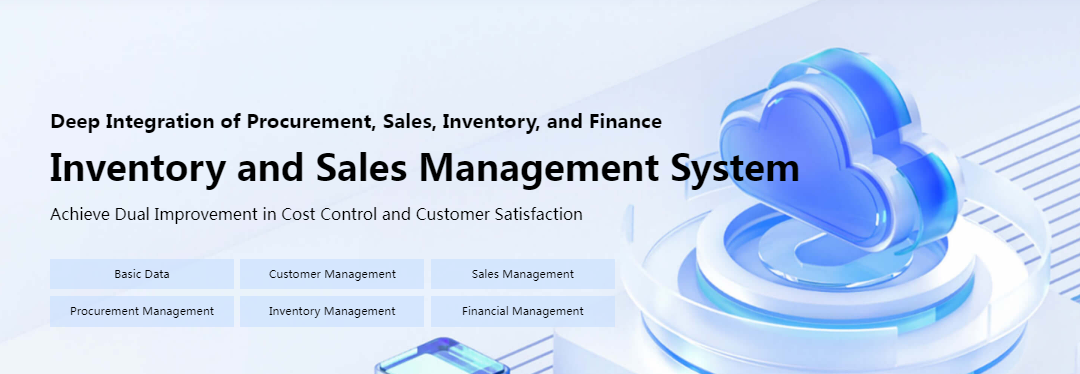
Procurement Management
Procurement is the starting point of the enterprise supply chain. The procurement management module of the inventory management system uses digital tools to solve problems like information lag, frequent errors, and omissions in traditional procurement. It supports procurement demand management, supplier collaboration, purchase order tracking, and warehouse receipt inspection. When product stock falls below the warning level, the system can automatically trigger procurement suggestions, calculating the optimal purchase quantity based on historical sales data, helping enterprises balance "stock-out risk" and "inventory holding costs".
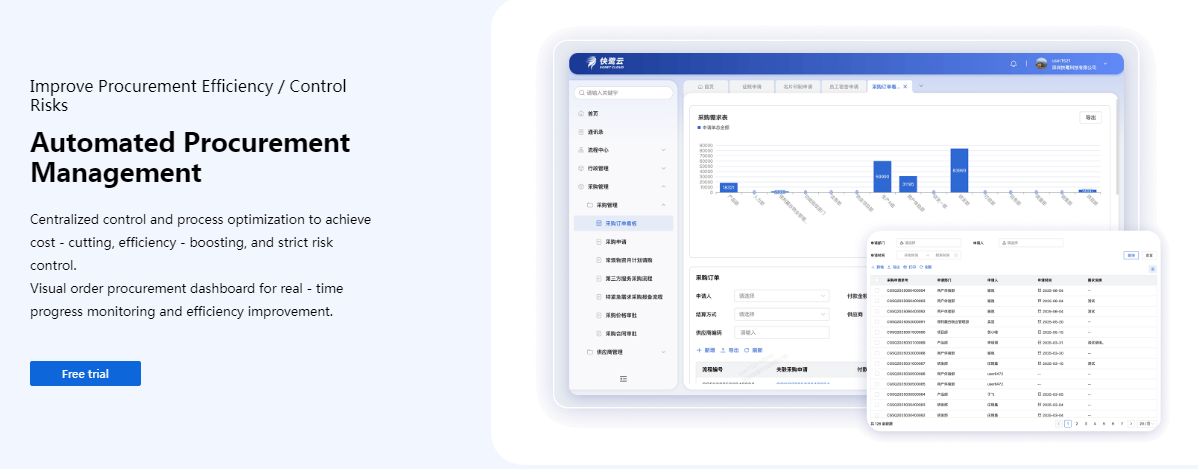
Sales Management
Sales are the core source of enterprise revenue. The sales management module of the inventory management system focuses on "improving conversion efficiency" and "reducing bad debt risk". It covers customer management, sales order processing, shipping and delivery, and accounts receivable tracking. The system supports online order creation and automatically links inventory data – if product inventory is insufficient, the system prompts out-of-stock status in real-time to prevent overselling; if stock is sufficient, the available inventory is automatically deducted after order generation.
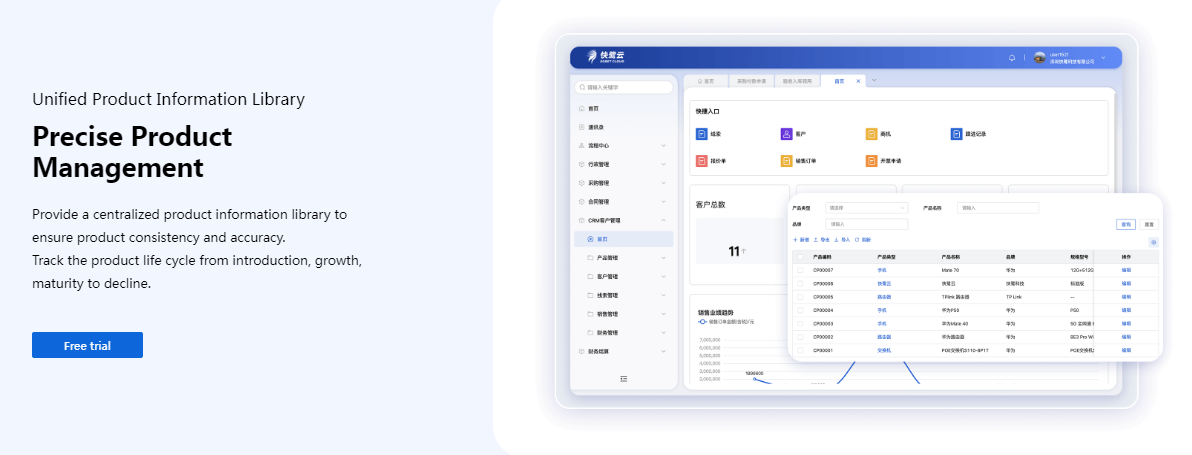
Inventory Management
Inventory is a major part of enterprise capital occupation. The inventory management module of the inventory management system achieves refined inventory control through real-time inventory monitoring, intelligent alerts, multi-dimensional counting, and batch and shelf-life management. The intelligent alert function allows setting minimum and maximum inventory thresholds. When product stock falls below the minimum value, the system pushes replenishment reminders; when it exceeds the maximum value, it alerts to slow-moving risk.
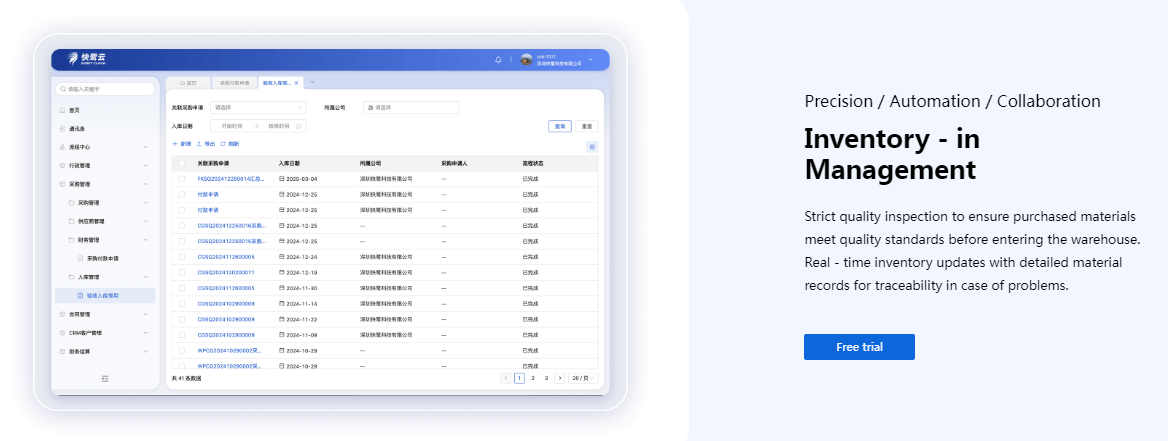
Financial Management
The financial management module of the inventory management system integrates business and finance through automatic voucher generation, revenue and expenditure management, and financial reporting functions. The automatic voucher generation feature converts business data (such as sales order receipts, purchase order payments) into financial vouchers automatically, eliminating manual entry and reducing error rates.
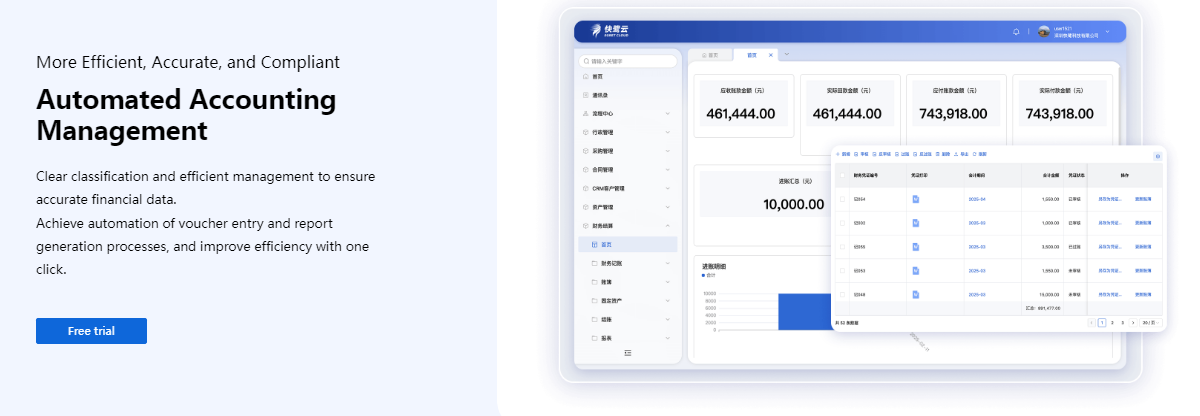
Data Analysis
In the digital era, data is a core asset of enterprises. The data analysis module of the inventory management system transforms vast amounts of business data into decision-making basis through multi-dimensional reports, visual dashboards, and intelligent forecasting functions. Multi-dimensional reports support analyzing key indicators like sales data, inventory turnover rate, and procurement costs by dimensions such as time, product category, customer group, and warehouse.
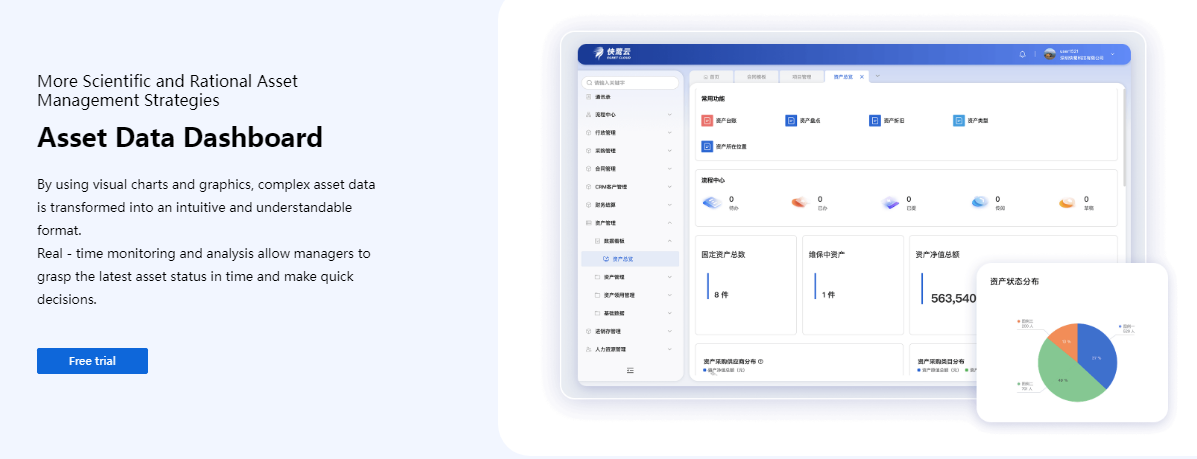
Kuailu Cloud: The AI and Low-Code Driven Intelligent Inventory Management Solution
Its core product, Kuailu Cloud Office System, integrates AI large models and low-code capabilities, providing a new‘s solution for enterprise inventory management.
Low-Code Capability: A Convenient Path for Transformation
The powerful low-code capability of Kuailu Cloud allows enterprise employees, without needing to be professional programmers, to quickly build various applications tailored to the actual business needs of the enterprise through simple drag-and-drop and configuration operations.
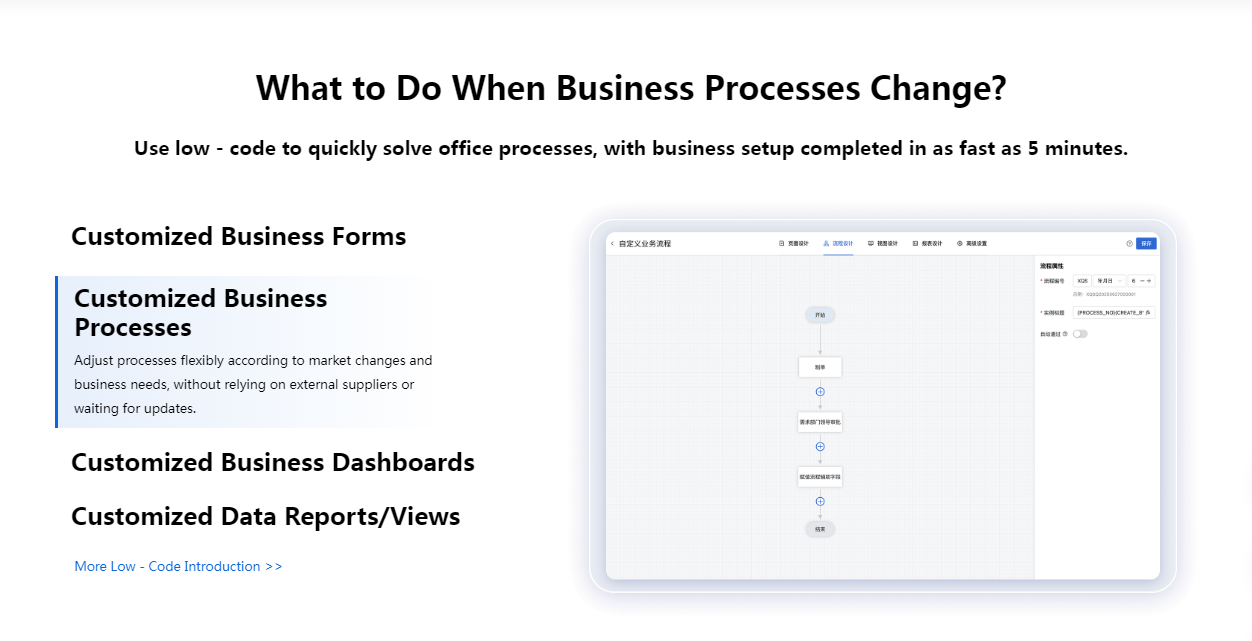
Practical Application Scenario: How Kuailu Cloud Empowers Enterprises
In the practical application at a textile manufacturing enterprise, Kuailu Cloud demonstrated significant results!
Before the peak sales season, the enterprise used the Kuailu Cloud platform to quickly build an inventory management application. Digital management was achieved across all stages from activity planning and product discount setting to order tracking and inventory allocation.
This effectively coped with the surge in business volume during the peak season, achieving a 30% year-on-year increase in sales.
Security Assurance and High Cost-Effectiveness: A Solid Backing for Transformation
In the digital age, data security is paramount. Kuailu Tech places high importance on enterprise data security protection. Its Kuailu Cloud Office System has passed the National Information Security Level Protection Level 3 certification. Multiple security measures are adopted, including encrypted data storage, hierarchical permission control, comprehensive operation logging, and audit trails, ensuring the security, integrity, and confidentiality of enterprise data during transmission, storage, and use.
Compared to traditional digital transformation solutions that often involve high development costs ranging from hundreds of thousands to millions of RMB and lengthy deployment cycles, Kuailu Tech's solution offers significant cost advantages.








